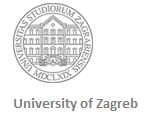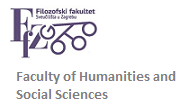Course title: Sociolinguistics
Course coordinator: Dr. Anđel Starčević, Assistant Professor
Instructor: Dr. Anđel Starčević, Assistant Professor
ECTS credits : 5
Language: English
Semester: 3rd (winter) (linguistics program)
Form of instruction: 2 lectures + 2 seminars
Enrollment requirements: enrollment in the third semester
Exam: written
Course description: The course conceptualizes language as a process and a frame for various realizations or varieties, such as standard and non-standard dialects, sociolects, styles and jargons. It deals with describing and interpreting their functions in specific communities, as well as with the explicit and implicit metapragmatic levels of various language ideologies, which are an integral component of language use, often with important social consequences. The course is taught through lectures and seminar discussions, with an emphasis on individual work. For their weekly seminar work, students need to pre-read the assigned texts and be prepared to critically discuss them. During the semester, each student will (1) present one seminar topic based on one of the assigned texts and formulate questions for discussion with the class, as well as (2) carry out, write up and (in the second half of the semester) present their own research project in the form of a research paper. The research paper includes carrying out one sociolinguistic interview, transcribing the material, and analyzing the data with references to relevant literature. The final grade in the course is a combination of the results of a written final exam (60%) and the research paper (40%).
Course objectives: Enabling students to understand the link between linguistic and extralinguistic phenomena, the interplay between the communicative and symbolic levels of language, and the role of language in creating ideological views. Developing the ability to critically consider prevalent ideas on language and language variability. Developing methodological and analytical skills for autonomous sociolinguistic research.
Week-by-week schedule:
- Sociolinguistics as a branch of linguistics. Language, dialect, accent, variety.
- Field methods. The sociolinguistic interview.
- Language ideologies and Critical Discourse Analysis 1.
- Language ideologies and Critical Discourse Analysis 2.
- Language and identity. Speech communities.
- Language and social class. Language and ethnicity.
- Bilingualism and code-switching.
- REVISION 1.
- Language, gender, and sexuality.
- Language and style. Language attitudes.
- Language policy and language planning.
- Sociolinguistics and second language acquisition.
- Linguistic landscapes. Language death.
- Research project presentations.
- REVISION 2.
Required reading:
Trudgill, Peter (2000) Sociolinguistics: An Introduction to Language and Society. (4th edition). London/New York: Penguin. (selected chapters)
Llamas Carmen, Mullany Louise and Peter Stockwell (eds) (2007) The Routledge Companion to Sociolinguistics. London/New York: Routledge. (selected chapters)
Suggested reading:
Hudson, Richard (1996) Sociolinguistics. (2nd edition). Cambridge: Cambridge University Press.
Romaine, Suzanne (2007) Language and Society. Oxford: Oxford University Press.
Stockwell, Peter (2007) Sociolinguistics: A Resource Book for Students. (2nd edition). London/New York: Routledge.
Wardhaugh, Ronald and Janet M. Fuller (2015) Introduction to Sociolinguistics. (7th edition). Oxford: Wiley-Blackwell.



